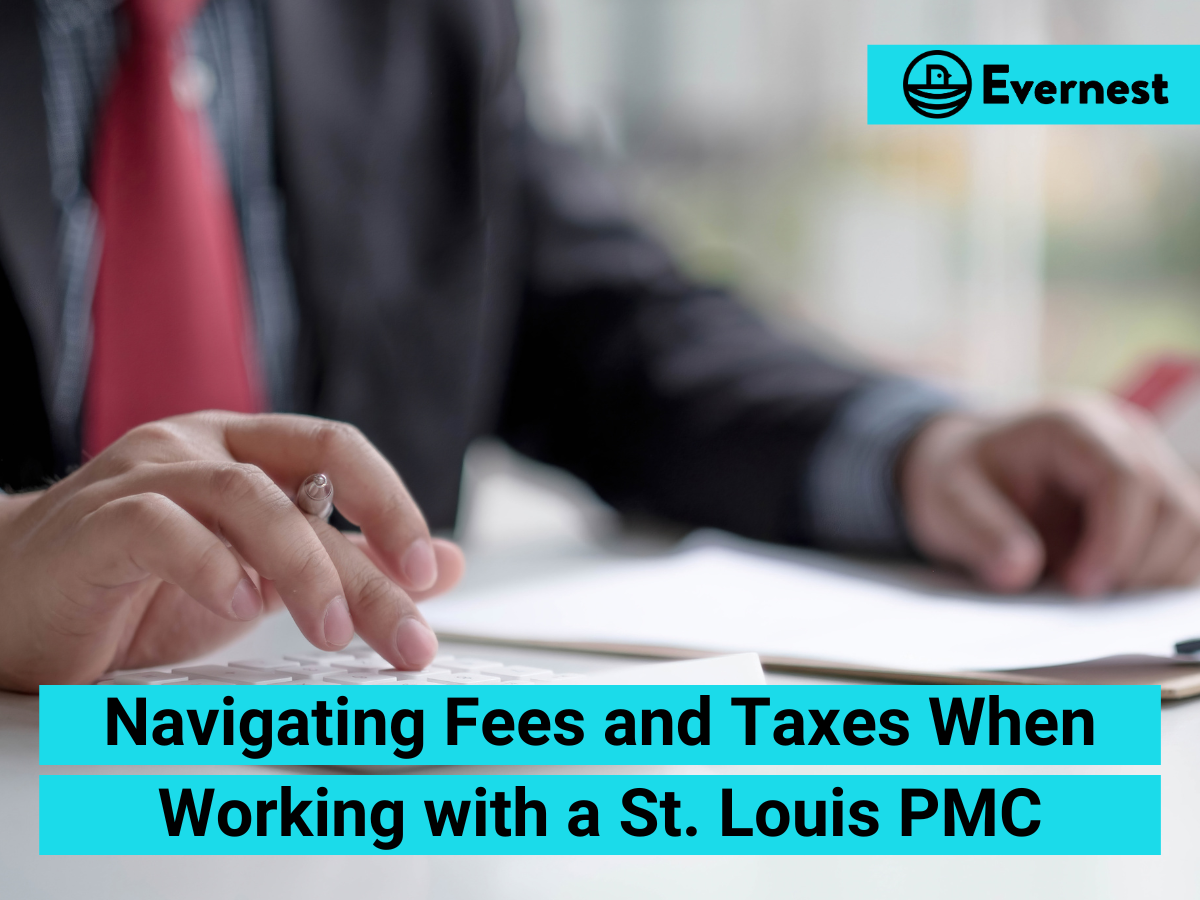Being a landlord can be lucrative, but it also comes with responsibilities. In particular, confusion and stress can arise for landlords when dealing with fees and taxes, a crucial element of the success and profitability of their rental property business.
In this article, we’ll explore navigating fees and taxes when working with a St. Louis property management company and provide helpful tips for streamlining your financial processes.
Let’s dive in!
Understanding Property Management Fees
Property management fees vary depending on the company and the services they provide. Some common property management fees include:
Leasing fee: This fee is charged when the property management company finds and secures a new resident for your rental property.
Management fee: This is a recurring fee that is typically a percentage of the monthly rent. It covers the day-to-day management tasks, such as resident communication, rent collection, and property maintenance.
Maintenance fee: In addition to the management fee, some property management companies charge an extra fee for handling maintenance and repair requests.
Determining your total management costs is essential for budgeting and assessing the profitability of your rental property business. Make sure to ask potential property management companies for a detailed breakdown of their fees before making a decision.
Note: When considering a few different companies, it might be a good idea to run a comprehensive price comparison.
Tax Deductibility of Management Fees
Fortunately, the fees you pay to a property management company are generally tax-deductible expenses, reducing your taxable income and lowering your tax liability. However, it's crucial to keep detailed records of the fees paid to the property management company, as well as any supporting documentation. This will make it easier for you or your tax professional to claim the deductions accurately during tax season.
Property-Related Taxes
The three main elements of property-related taxation are property taxes, income tax implications, and tax benefits of rental properties.
Property Taxes
Property taxes are annual taxes imposed on the assessed value of your rental property. The tax rates and assessment methods can vary depending on your location. It's essential to understand the property tax regulations in St. Louis and ensure that you budget accordingly.
Income Tax Implications
Rental income is considered taxable income by the IRS. It's crucial to report your rental income accurately and claim any eligible deductions to minimize your tax liability.
Tax Benefits of Rental Properties
Rental properties can also provide various tax benefits for landlords. One notable benefit is the ability to depreciate the value of your rental property over time, which can offset your taxable rental income. Additionally, landlords who invest in energy-efficient improvements may qualify for tax credits that can further reduce their tax burden.
Tracking and Reporting Expenses
To ensure accurate tax reporting and maximize your deductions, it's crucial to keep detailed records of all your rental property expenses. This includes invoices, receipts, and bank statements related to property management fees, repairs, maintenance, and other related costs. Utilizing accounting software can help streamline this process and provide you with organized records that make tax time less stressful.
Tax Deductions and Credits
Some common property-related tax deductions include:
Mortgage interest deduction
Depreciation deduction
Repairs and maintenance deduction
Insurance deduction
Travel expenses deduction
Additionally, landlords who engage in a Section 1031 Exchange, also known as a like-kind exchange, can defer capital gains taxes by reinvesting the proceeds from the sale of one property into another similar property. Consulting with a tax professional who specializes in real estate taxation can help you fully understand and take advantage of these deductions and credits.
Working with Tax Professionals: Hiring a Tax Professional
A qualified tax professional with experience in real estate taxation can ensure that you comply with all tax regulations, maximize your deductions, and minimize your tax liability. They can also help you navigate any unique tax situations or changes in tax laws that may affect your rental property business.
Local Tax Regulations and Variations
Familiarize yourself with the local tax regulations and consult with a local tax professional to ensure compliance and take advantage of any location-specific tax benefits that may be available to landlords in your area.
Deadlines and Compliance: Tax Filing Deadlines
The federal tax filing deadline for individual taxpayers is usually April 15th, but it may vary in certain circumstances. Additionally, state and local tax filing deadlines may differ from the federal deadline. Consult a tax professional or refer to the official IRS and local tax authority websites to determine the specific tax filing deadlines that apply to you.
Conclusion, Seeking Professional Guidance, and Additional Resources
In conclusion, understanding and navigating fees and taxes when working with a St. Louis property management company is essential. By familiarizing yourself with the types of fees, tax deductibility, property-related taxes, and tax deductions, you can ensure financial preparedness and maximize your profitability. Seeking the guidance of tax professionals and staying informed about local tax regulations will further enhance your financial management.
For additional resources and support, consider reaching out to local landlord associations, real estate attorneys, and tax professionals who specialize in rental property taxation.
Looking for a St. Louis property management company to help out? Contact our local team today!


